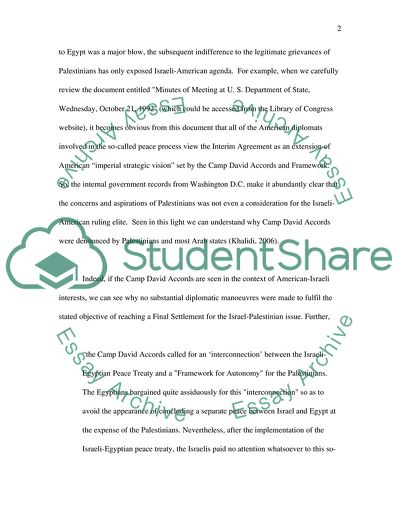Cite this document
(The Camp David Accords between Israel and Egypt and the Arab states' Essay, n.d.)
The Camp David Accords between Israel and Egypt and the Arab states' Essay. Retrieved from https://studentshare.org/politics/1716289-the-camp-david-accords-between-israel-and-egypt-were-justifiably-denounced-by-most-of-the-arab-states-and-the-palestinians
The Camp David Accords between Israel and Egypt and the Arab states' Essay. Retrieved from https://studentshare.org/politics/1716289-the-camp-david-accords-between-israel-and-egypt-were-justifiably-denounced-by-most-of-the-arab-states-and-the-palestinians
(The Camp David Accords Between Israel and Egypt and the Arab states' Essay)
The Camp David Accords Between Israel and Egypt and the Arab states' Essay. https://studentshare.org/politics/1716289-the-camp-david-accords-between-israel-and-egypt-were-justifiably-denounced-by-most-of-the-arab-states-and-the-palestinians.
The Camp David Accords Between Israel and Egypt and the Arab states' Essay. https://studentshare.org/politics/1716289-the-camp-david-accords-between-israel-and-egypt-were-justifiably-denounced-by-most-of-the-arab-states-and-the-palestinians.
“The Camp David Accords Between Israel and Egypt and the Arab states' Essay”. https://studentshare.org/politics/1716289-the-camp-david-accords-between-israel-and-egypt-were-justifiably-denounced-by-most-of-the-arab-states-and-the-palestinians.


